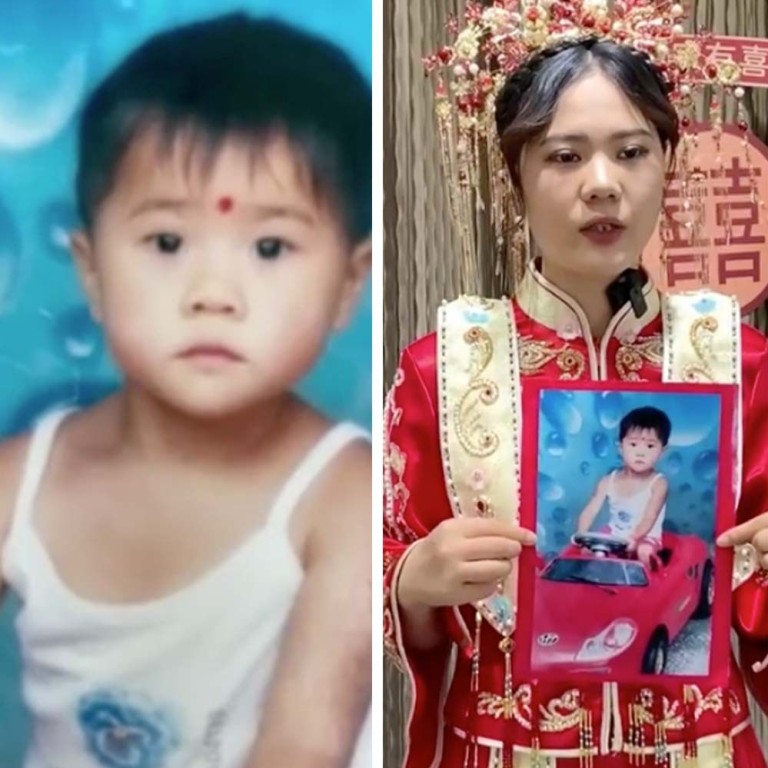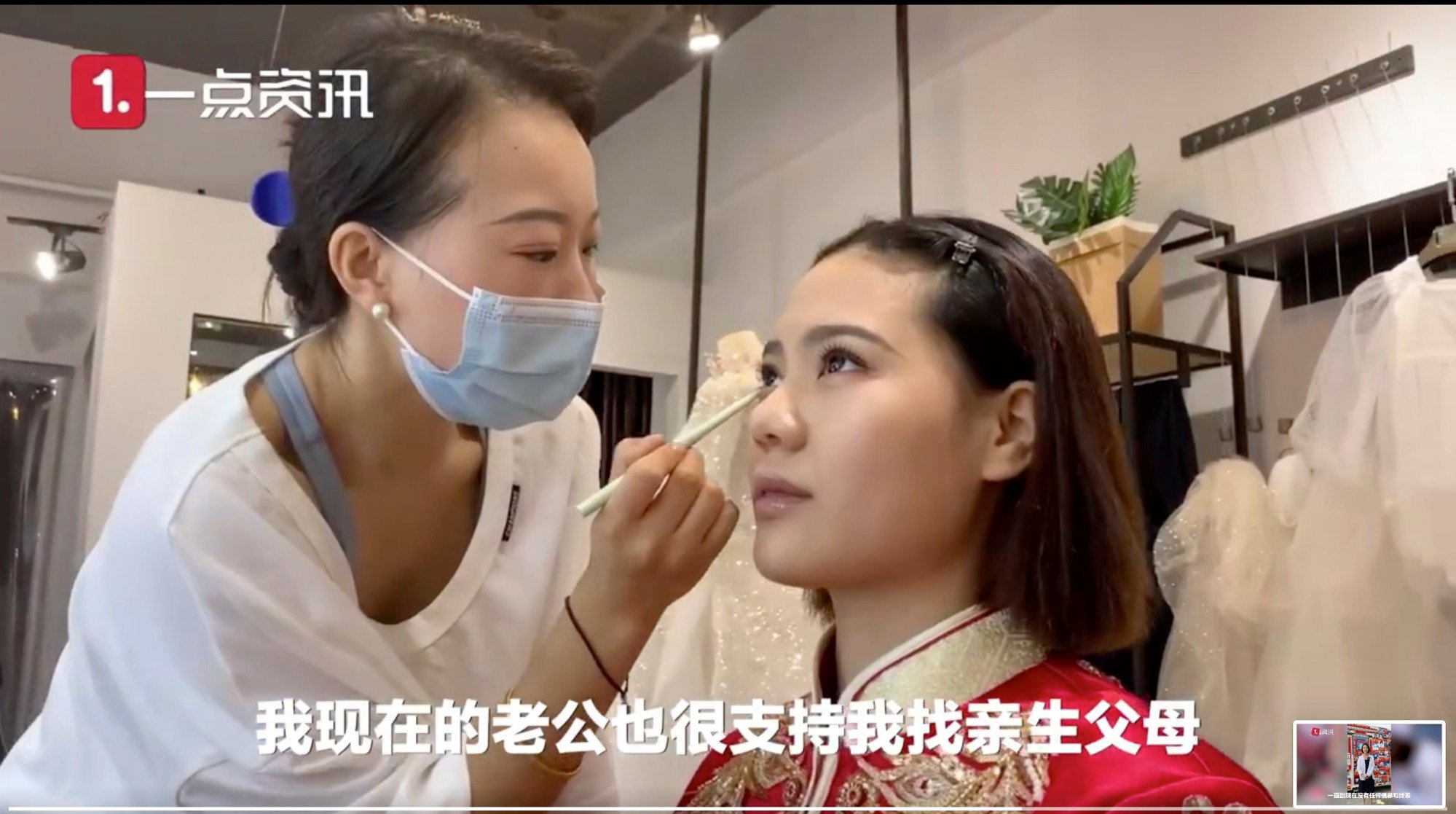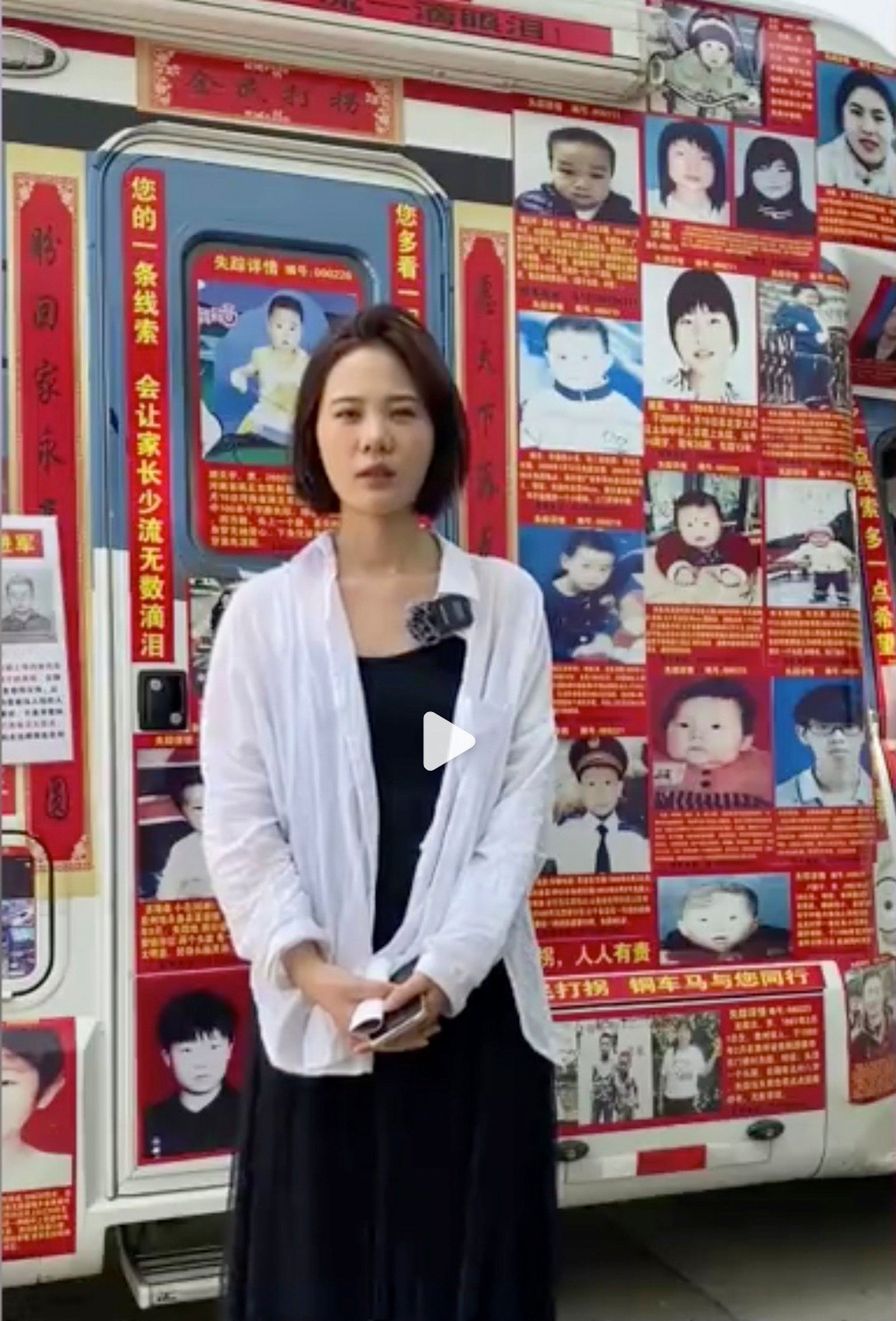
Chinese child-trafficking victim, sold for US$150, posts wedding dress video in bid to find birth parents before her nuptials
- Bai Xuefang was snatched from her home as a three-year-old and sold for 1,000 yuan (US$150)
- Her story has prompted many other victims to speak out and offer support
A viral video showing a human trafficking victim – who was snatched from her home as toddler – dressed in a traditional Chinese wedding gown appealing for help to find her birth parents has prompted an outpouring of emotion in mainland China.
“As I am soon to marry, I hope that my biological parents can be present at my wedding ceremony,” Bai said in the video, wishing they could be there to share her happiest moment.
“I’m also hoping that people who see the video will be able to help me find my biological parents,” Bai added.
“I was born around 1998 and was abducted and sold to my current adoptive family by traffickers for 1,000 yuan (US$150) when I was three or four years old,” she added.

Bai says she has no recollection of her birth family and the only thing she has from the past is the photo.
“I found out the truth about my origins when I was 11 years old and often quarrelled with my adoptive parents,” Bai said. “They also frequently beat and verbally abused me.”
She said that she began working at the age of 17 and has travelled across the country, including Guizhou, Yunnan, Shandong, Henan, and Beijing, in search of her biological parents.
“But so far, I haven’t received any information or even a hint about them,” Bai said.
She is currently running a Chinese savior crepe stall with search information about her family printed on the stall in the hope that customers will spread the word.
Bai said that she would continue her search for her birth parents and hopes to be reunited with them soon, with the unwavering support of her soon-to-be husband.
Many people have been moved to tears by the girl’s determination and wish her well, while others have shared their own similar experiences online.
“I also hope to get reunited with my biological parents, but they abandoned me from the start,” one person commented. “I hope those abducted children soon find their birth families.”
“I think we all want to know where we came from so we can better plan for the road ahead,” said another. “I’m hoping that this young lady soon finds her birth parents.”

According to China’s National Bureau of Statistics, from 2010 to 2019, the number of cases of trafficking in women and children nationwide totalled 112,703.
Child abductions and abandonment have been a persistent problem in China for decades. According to some unofficial reports, an estimated 10,000 children are kidnapped in China every year.
A series of high-profile cases in the past year pushed the issue into public discourse, and it has become a priority topic for lawmakers and was highlighted during the annual “two sessions”, the country’s biggest political meetings, earlier this year.
In March, China’s Ministry of Public Security launched a year-long campaign to tackle the trafficking of women and children, the subject of national fury since a video of a mentally-ill woman chained in a dirty shack by her husband went viral.
The ministry announced it would mobilise everything in its power – including police and the departments of civil affairs and health as well as women’s federation organisations – to tackle the issue.

